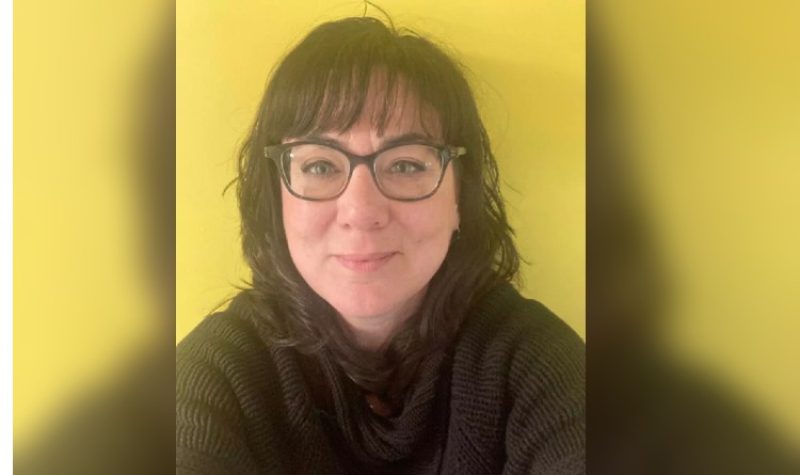A Sackville-based artist wants to help people reimagine collective possibilities in the age climate crisis.
“We won't build a new future with the same tools that got us to this crisis point,” says Shoshanna Wingate, Sackville’s former poet laureate. “So we're writing a new future, a new story for our future.”
Wingate is among three artists taking part in From Harm to Harmony, an artist-in-residency and mentorship program organized by the Conservation Council of New Brunswick.
“Their time with the Conservation Council will culminate with a community-engaged art event that will encourage New Brunswickers to take action to protect our planet and provide them with an avenue to do so,” the non-profit group announced last week.
Wingate’s project will focus on the movement in New Brunswick against shale gas exploration and hydraulic fracturing or “fracking,” a controversial technique to obtain fossil fuels from shale rock.
The Indigenous-led movement against shale gas in New Brunswick came to a head in 2013, when the RCMP cleared an anti-fracking encampment that blocked a facility belonging to SWN Resources Canada. In 2014, the provincial government under Liberal premier Brian Gallant introduced a moratorium against fracking. The Progressive Conservative government under Premier Blaine Higgs "quietly carved out a small exemption" to the moratorium in 2019 for an operation near Sussex, according to the CBC. Recently he has pushed for new shale gas development in New Brunswick. Higgs contends shale gas development will result in a financial windfall and provide “very clean natural gas” to Europe amid the energy crisis prompted by Russia’s invasion of Ukraine.
Wingate hopes to challenge what she describes as a narrative of scarcity that results in ongoing dependence on the burning of fossil fuels. “We're told climate change and its solutions are complicated, difficult to enact, that the boat we're on is too big and too unwieldy to turn in time. Our society depends upon the very things we must do without, namely, fossil fuels, and no one has a good answer. Or so the story goes,” she said in an interview.
“Another story tells us that we have all the energy solutions we need right now. Everything. We are abundant. We know what changes we need to make, and the solutions exist. What we don't have is political will.”
Her project, a partnership with the Sackville Commons Co-op, will involve a series of workshops where participants will write “collage poems of resistance.”
It’s her first foray into community-engaged art and involves a mentorship with artist Laura Barron, who helped her understand how to “bring people to a place of action” through art. “It's opening a whole new line of dreaming and reimagining for me, an opportunity to create a sensory experience where we can engage with each other on energy abundance, the future, our collective stories, and how we can shape the future we want.”
Other artists taking part in the residency include hip hop artist Stephen Hero of Saint John and painter Mario Doiron of Saint Paul.
Danielle Smith, who runs the program for the Conservation Council, said art provides a way for people to engage with environmental issues that otherwise seem daunting and overwhelming. “Instead of bombarding people with negative messages and scary stats — we all know those exist, and we all know those are real — we provide them with an avenue to see the silver lining.”
This story was updated on June 1, 2023 at approximately 3 p.m. Atlantic to note that an exemption to the moratorium was introduced in 2019.
Listen to the radio report below:


